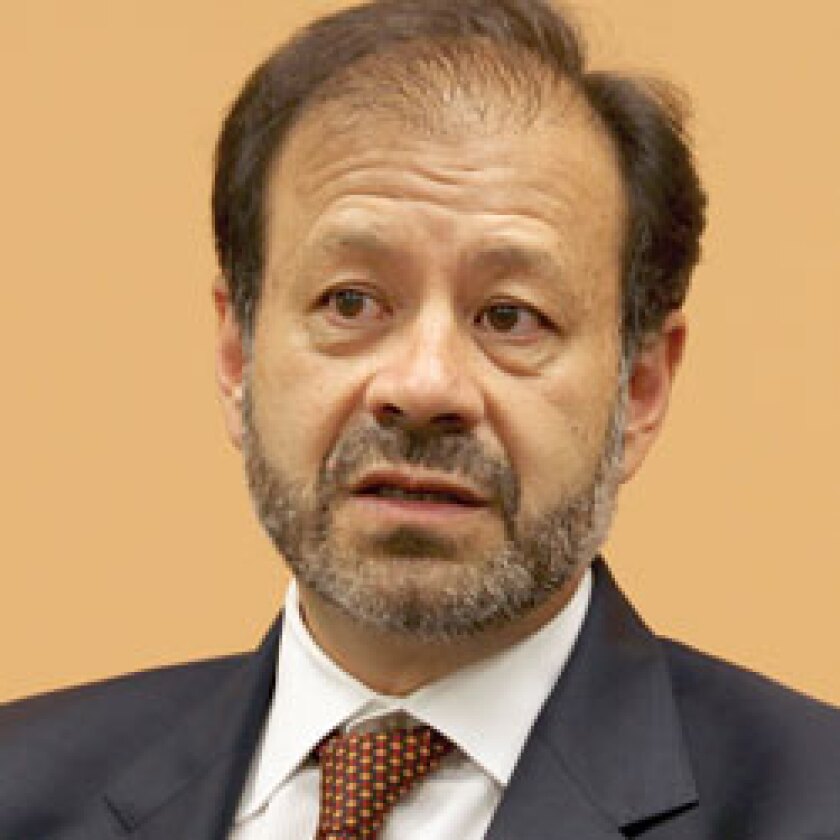Latin America will struggle to repeat the “robust” performance of the last decade unless it embarks on a programme of reforms aimed at boosting the region’s productivity, a leading World Bank official warns today.
The “magical combination” of economic expansion and poverty reduction is in danger of being a “one-off success”, according to Augusto de la Torre, the Bank’s chief economist for Latin America and the Caribbean Region.
Writing exclusively in today’s Emerging Markets, de la Torre says that since 2003 income inequality has decreased while the Latin American economy expanded robustly even as poverty fell sharply. “Upward mobility became a reality,” he says.
But while good economic management played a major and positive role, the situation was massively improved by “tail winds” – high commodity prices and abundant capital inflows.
“The tail winds facilitated things immensely - growth with equity could be had with relatively little effort,” he says, but warns: “Going forward, however, it would be unwise to count on tail winds.”
He said the boom from commodity prices and capital flows could weaken, become more volatile or both, which means that countries will need to achieve greater productivity - more effort per unit of additional gain – to continue the trend.
The big issue for Latin American policymakers is where the drivers for future growth will come from. De la Torre warns that a reliance on foreign savings may be misguided as that may simply add to volatility and make local currencies less competitive.
This shift between the decades is reflected in the Bank’s forecasts. Its latest economic outlook shows that the region will grow by 3.9% over the next two years, much slower than the GDP expansion rates of 6.1% and 4.4% in 2010 and 2011. It grew just 3.0% last year.
Meanwhile domestic savings may remain “constrained” for some time, he says. “To continue on the path of growth with equity, therefore, the emphasis has to be squarely on productivity-enhancing reforms,” de la Torre writes. “To make the great achievement of a decade of growth with equity a sustainable story, Latin America has to crack the productivity nut.”
He says it is important to bear in mind that reductions in poverty and income equality were driven by the fact that labour-related income of the poorer population grew much faster than the average growth in per capita income.
This meant that, as the total economic pie was expanding, income was being redistributed proportionately more to the poor, who had a higher propensity to consume.
“For a region deeply scarred by a long history of horrendous inequities, the rise in aggregate consumption associated with the massive flow of people out of poverty was arguably a preferable path to follow than a sacrifice of consumption in order to build growth capacity for the future. “
His comments come just a couple of days after the United Nations said that up to 80% per cent of the world’s middle classes would live in developing countries by 2030 thanks to surprising recent gains in poverty reduction.
Launching the Human Development Report in Mexico on Thursday, Mexican President Enrique Peña Nieto said the rise of developing countries like Brazil and Mexico was a “profound shift”
“They are emerging nations that are transforming today’s reality through active social policies that are improving living conditions for the most vulnerable groups,” he said.
- Like every year, Emerging Markets daily newspaper covers the Inter-American Development Bank’s annual meeting, held in Panama in mid-March. Pick up your copy at the meeting, read the news on our website and follow us on twitter @emrgingmarkets
